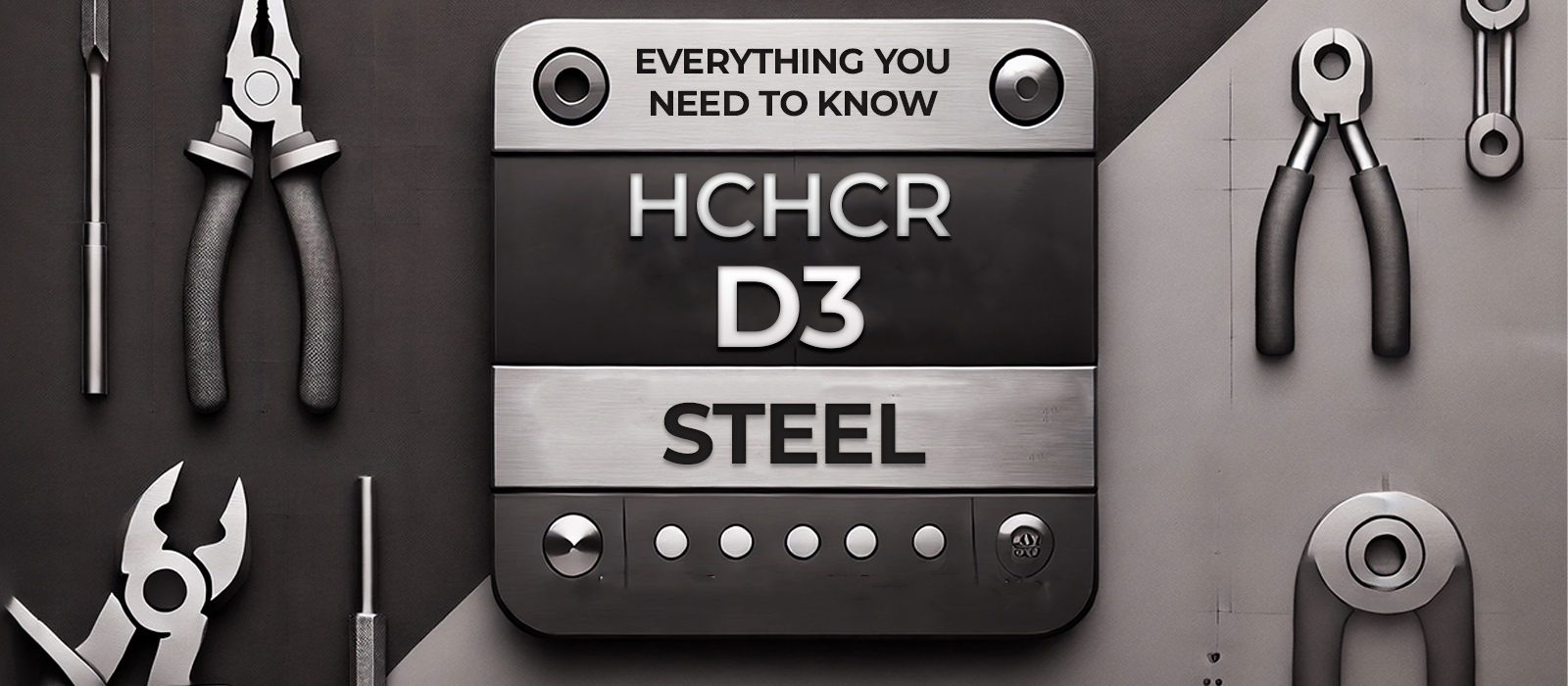
If you work in toolmaking, die manufacturing, or industrial cutting applications, you’ve probably heard about HCHCR D3 steel. Known for its exceptional hardness, wear resistance, and longevity, D3 steel is a top choice in industries that require high-strength tooling materials.
But what makes D3 steel different from other tool steels like D2? In this blog, we’ll break down the chemical composition, key properties, applications, and advantages of HCHCR D3 steel to help you understand why it’s widely used in various industrial processes.
What is HCHCR D3 Steel?
HCHCR D3 steel (High Carbon High Chromium D3) is a cold-work tool steel with an extremely high carbon content (2.1%) and chromium content (12%). This composition makes it one of the hardest and most wear-resistant tool steels available.
Key Characteristics of D3 Steel
Ultra-High Hardness: Can achieve 60-64 HRC after heat treatment.
Exceptional Wear Resistance: Highly resistant to abrasion and friction.
High Compressive Strength: Can withstand heavy loads without deformation.
Moderate Corrosion Resistance: Chromium content provides some protection against rust.
Brittle in Nature: Not ideal for applications with impact or shock loads.
Because of these properties, D3 steel is widely used in tooling applications that require extreme hardness and wear resistance.
Applications of D3 Steel
Because of its high hardness and wear resistance, D3 steel is widely used in industries wheretools and components undergo continuous stress and wear.
1. Tool & Die Manufacturing
Shear Blades & Punches – Used for cutting, stamping, and punching metal sheets.
Forming & Stamping Dies – Ideal for high-production environments.
Wire Drawing Dies – Essential for wire-forming applications.
2. Cutting Tools & Blades
Industrial Knives & Choppers – Used in paper, textile, and plastic industries.
Granulator Blades – Ideal for plastic recycling and metal granulating.
3. Cold Work Applications
Rolling Mill Rolls – Used in metal rolling and shaping processes.
Brick & Tile Molds – Highly resistant to abrasion from clay and cement.
D3 steel is commonly chosen for these applications due to its ability to withstand extreme wear and tear over long periods.
Advantages of Using D3 Steel
Superior Hardness & Strength: One of the hardest tool steels available, making it perfect for high-wear applications.
Longer Tool Life: Due to its wear resistance, tools made from D3 steel last much longer than standard tool steels.
Good Dimensional Stability: Maintains precision and accuracy after machining and heat treatment.
Low Maintenance Costs: Less frequent tool replacement leads to reduced downtime and lower costs.
However, D3 steel is not ideal for applications requiring impact resistance. If your process involves shock loading or high-impact forces, a tougher steel like D2 or H13 may be a better choice.
For premium-grade D3 steel, HD Industries is a trusted supplier, known for its high-quality tool steels and customized material solutions. Whether you need precision-engineered dies, cutting tools, or wear-resistant components, HD Industries ensures that every product meets industry standards for durability and performance.
HCHCR D3 steel is an excellent choice for industries that need extreme hardness and wear resistance in their tools and components. However, because it is more brittle than other tool steels, it is best suited for applications where impact resistance is not a major factor.

Add a Comment